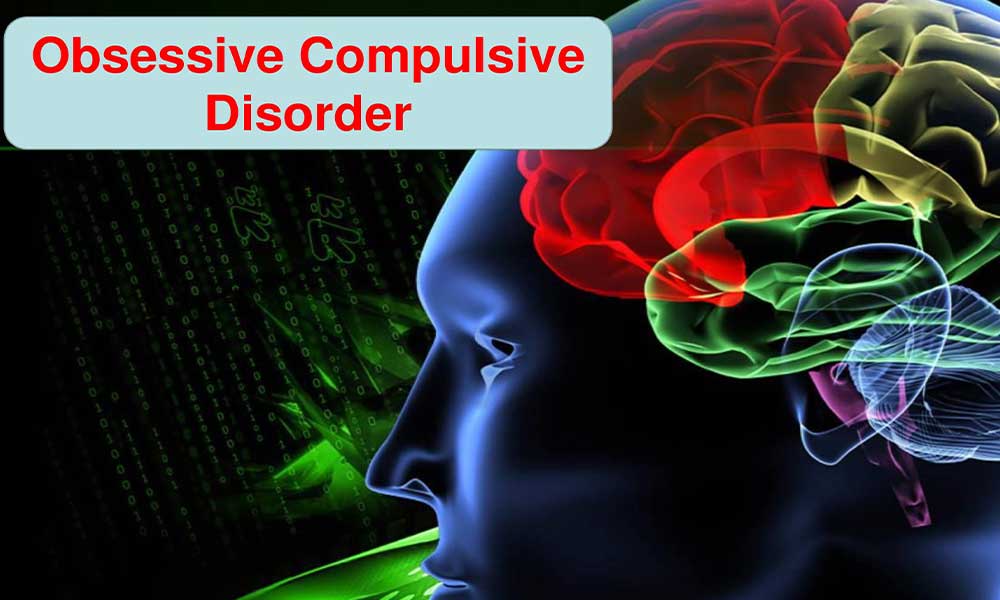

OCD is an obsessive-compulsive disorder. In that obsessive means, excessive thoughts and that thought lead to repetitive behaviour that called compulsions. Obsessive-compulsive disorder (OCD) is characterised by unreasonable fears and thoughts that cause compulsive behaviour. In simple words, Obsessive-compulsive disorder is a disorder in which the suffering person has unwanted, recurring ideas and thoughts or sensations that make them feel driven to do actions repetitively. To understand Obsessive-Compulsive Disorder (OCD) better, let us know first about obsession and compulsions.

Obsessions are persistent and recurrent impulses, thoughts, or images that lead to distressing emotions. Distress emotions can be anxiety or disgust. Many people with Obsessive-Compulsive Disorder (OCD) feel that the impulses, thoughts, or images are the product of their excessive or unreasonable mind.
The following are some obsessions that a person may face while having obsessive compulsion disorder.
Fear of getting contaminated by the environment or the people
Extreme concern with symmetry, order, precision
Disturbing sexual images or thoughts
Recurrent intrusive thoughts of sound, words, number, and images
Fear of blurting out insults or obscenities
Fear of discarding or losing something important
Compulsions are mental acts or repetitive behaviour of OCD suffered person. A person performs repetitive actions in response to an obsession. The repetitive behaviour (compulsion) reduces or prevents a person’s distress related to an obsession.
The following are some compulsions that a person may face while having obsessive compulsion disorder.
Ritualised or excessive hand washing, brushing teeth, showering, or toileting
Extreme concern with symmetry, order, precision
Repeatedly checking switches, locks, or other appliances
Touching, moving, or tapping an object in a particular way
Frequently cleaning of household things.
Constantly seeking reassurance or approval.
Silently repeating a phrase, word, or prayer.
Checking gas stove repeatedly.
Repeatedly arranging or ordering things.
Repeated counting to a certain number.
The following are the causes of Obsessive-Compulsive Disorder (OCD)
Obsessive-Compulsion Disorder (OCD) can be caused due to genetic or hereditary factors.
Obsessive-Compulsion Disorder (OCD) can be caused due to functional, chemical, or structural abnormalities in the brain.
The following are the symptoms of Obsessive-Compulsive Disorder (OCD) a person may face. There are different symptoms of obsession, and compulsions are different.
The following are the symptoms of compulsions
Repeatedly ordering
Repeatedly checking
Repeatedly counting.
Repeatedly cleaning and washing
The following are the symptoms of obsession
Fear of blurting out insults or obscenities
Fear of discarding or losing something important
Disturbing sexual images or thoughts
Recurrent intrusive thoughts of sound, words, number, and images
Fear of harm from accident or illness or death that may occur to oneself.
Fear of getting contaminated by the environment or the people
Extreme concern with symmetry, order, or precision
Excessive concern about religious issues or mortality.
Intrusive images or thoughts about accidents, violence, sex, and other issues.
The following are some valuable tips a person may follow if suffering from Obsessive Compulsion Disorder (OCD)
Refocus your attention
Write down obsessive worries and thoughts
Anticipate urges to help ease them.
Set aside time for a daily worry period.
Take care of yourself
The followings are the treatment available for Obsessive-Compulsive Disorder (OCD)
Cognitive behaviour therapy aims to change the pattern of belief, thinking, and behaviours that trigger obsessive-compulsive symptoms or anxiety. This therapy uses techniques to control obsessive compulsion symptoms. This therapy is considered under psychological treatment.
The anxiety management technique can assist a person in managing their obsessive compulsion symptoms. Anxiety management techniques require regular practice for 100% result
Anxiety management technique includes the following
slow breathing technique
relaxation training
mindfulness meditation
hyperventilation control
Some medications, especially antidepressants that affect the serotonin system, have been founded to reduce the symptoms of Obsessive Compulsion disorder. One should take medicine only if prescribed by doctors.
The side effect of the medicine
Nausea
Headache
Dry mouth
Blurred vision
Dizziness